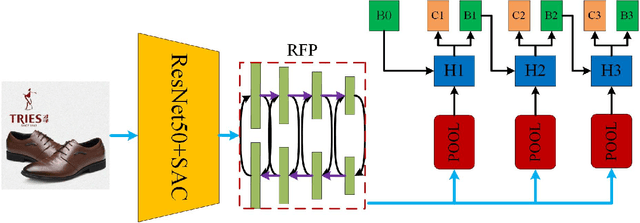Yonglin Wu
Distillation-Enhanced Physical Adversarial Attacks
Jan 04, 2025Abstract:The study of physical adversarial patches is crucial for identifying vulnerabilities in AI-based recognition systems and developing more robust deep learning models. While recent research has focused on improving patch stealthiness for greater practical applicability, achieving an effective balance between stealth and attack performance remains a significant challenge. To address this issue, we propose a novel physical adversarial attack method that leverages knowledge distillation. Specifically, we first define a stealthy color space tailored to the target environment to ensure smooth blending. Then, we optimize an adversarial patch in an unconstrained color space, which serves as the 'teacher' patch. Finally, we use an adversarial knowledge distillation module to transfer the teacher patch's knowledge to the 'student' patch, guiding the optimization of the stealthy patch. Experimental results show that our approach improves attack performance by 20%, while maintaining stealth, highlighting its practical value.
An Effective and Robust Detector for Logo Detection
Aug 01, 2021


Abstract:In recent years, intellectual property (IP), which represents literary, inventions, artistic works, etc, gradually attract more and more people's attention. Particularly, with the rise of e-commerce, the IP not only represents the product design and brands, but also represents the images/videos displayed on e-commerce platforms. Unfortunately, some attackers adopt some adversarial methods to fool the well-trained logo detection model for infringement. To overcome this problem, a novel logo detector based on the mechanism of looking and thinking twice is proposed in this paper for robust logo detection. The proposed detector is different from other mainstream detectors, which can effectively detect small objects, long-tail objects, and is robust to adversarial images. In detail, we extend detectoRS algorithm to a cascade schema with an equalization loss function, multi-scale transformations, and adversarial data augmentation. A series of experimental results have shown that the proposed method can effectively improve the robustness of the detection model. Moreover, we have applied the proposed methods to competition ACM MM2021 Robust Logo Detection that is organized by Alibaba on the Tianchi platform and won top 2 in 36489 teams. Code is available at https://github.com/jiaxiaojunQAQ/Robust-Logo-Detection.
 Add to Chrome
Add to Chrome Add to Firefox
Add to Firefox Add to Edge
Add to Edge